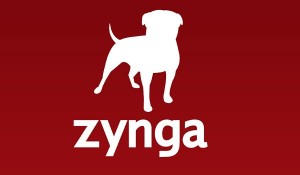 Zynga recently filed an initial public offering (IPO) which we have reported about earlier. This move is a result of Zynga’s business partnership with Facebook and their popular games such as FarmVille and CityVille. It is expected that the company value will increase from $15 billion to $20 billion.
Zynga recently filed an initial public offering (IPO) which we have reported about earlier. This move is a result of Zynga’s business partnership with Facebook and their popular games such as FarmVille and CityVille. It is expected that the company value will increase from $15 billion to $20 billion.
Zynga is a one of a kind achievement story, together with a unique venture with Facebook, their cloud strategy has been highly successful. Initially, the company made a non-traditional move with their marketing strategy. While others look for cloud computing as a means of extension of their data centers, Zynga did the opposite by launching their first games in the cloud and when they started to gain traction, brought them back in-house.
In Zynga’s case they used the quasi-public x86 data centers to offer their games for free either on Amazon or Z Cloud. That way they are able to build their own followers from the millions of followers in social networking sites. They have focused in creating games that will automatically get audiences and followers by either planting crops in FarmVille or compete anyone in Mafia Wars.
Allan Leinwand, CTO of infrastructure at Zynga explained how a game is developed. First it is launched for testing grounds, where it can either fail automatically due to lack of followers or it suddenly reaches overnight popularity and reach a huge level of players. When this happens, any gaming company should be ready to scale up for the sudden trajectory explosion. And the problem with most companies here is the capital investment they lose once the project does not pick up.
Leinwand developed a platform in Amazon Web Services that will launch a number of games and then allow it to build its own followers and then will have its final review after a given time. That is why Leinwand thinks that scaling up should already be part of the planned as early as the launching, that way the user’s interest will be sustained.
In November 2010, Leinwand launched CityVille in Amazon’s EC2’s pay-per-use. At first progress was slow, but after four months it now has 20 million players. The technique that Leinwand used here is to project how many players will be using it in a few months and how much data capacity he would need. And soon after it picked up, he returned it to Zynga.
Right now, CityVille is being played by 88 million people monthly and is now using x86 infrastructures better known as the Z Cloud. Zynga need not take so much time to develop the platform, what they did was to purchase it as a ready to run data center. Now, Zynga is prepared to add more 1,000 physical servers a day to the infrastructure to meet the gaming demands.
Last May 17, a new game called GagaVille was launched in Amazon to feature celebrity singer lady Gaga, And on May 31, Zynga again launched in Amazon EC2 another game called, Empires and Allies. This was even faster that CityVille because just by the end of June, it now has 42 million monthly users.
Leinwand said, he wants to “plot the curve of a game’s trajectory,” and then soon after he will invest in IT resources. This strategy will be enhanced by the new Zynga IPO, giving more powerful direction for its 2,000 employees. With its $598 million revenue last year and the millions of users added monthly, it is expected that Zynga will double its revenues this year.
Zynga’s revenues come from selling virtual assets using Facebook credits and for fanatics of the game; they spend a small amount on their plots. And in these sales activities, Facebook gets 30% from this revenue, which was signed and agreed by both parties last July. And although it has raised concerns on Zynga, they said, “If we are unable to maintain a good relationship with Facebook, our business will suffer.”
Leinwand said, “Our technology infrastructure is critical to the performance of our games and to player satisfaction. Our games run on a complex distributed system, or what is commonly known as cloud computing. We own, operate, and maintain elements of this system, but significant elements of this system are operated by third parties that we do not control and which would require significant time to replace. We expect this dependence on third parties to continue.”
Zynga is well aware of the possible problems like power outages and their concern is, “If a particular game is unavailable when players attempt to access it or navigation through a game is slower than they expect, players may stop playing the game and may be less likely to return to the game as often, if at all.”
Right now, Zynga is highly dependent on Amazon’s Web Services, so they are relying on the stability of their infrastructure, from the game launching until the expected critical mass of users arrive. They are just counting on the fact that if Amazon will fail them, it will also have a huge effect on their service. Zynga notes, “We do not maintain insurance policies covering losses relating to our systems and we do not have business interruption insurance.”
This is now a no turning back for Zynga as they continue to invest a total of $219 million including offering their games in iPhones and iPads.
With the success of the IPO, it will address most of the major problems of Zynga and once they have gained new revenues, they are hoping to bring back home all their products.